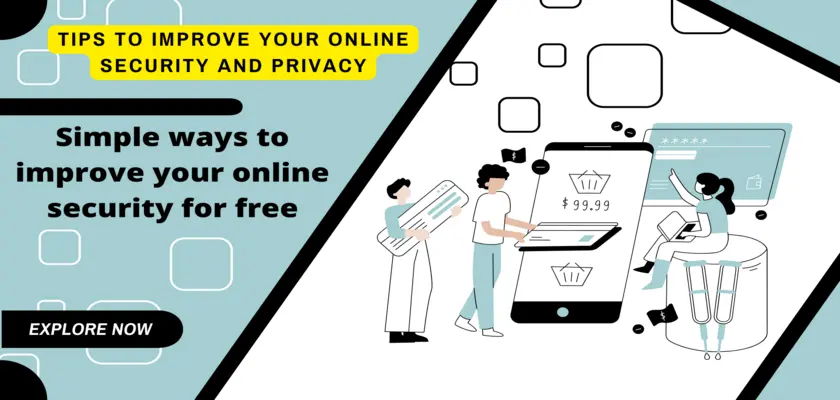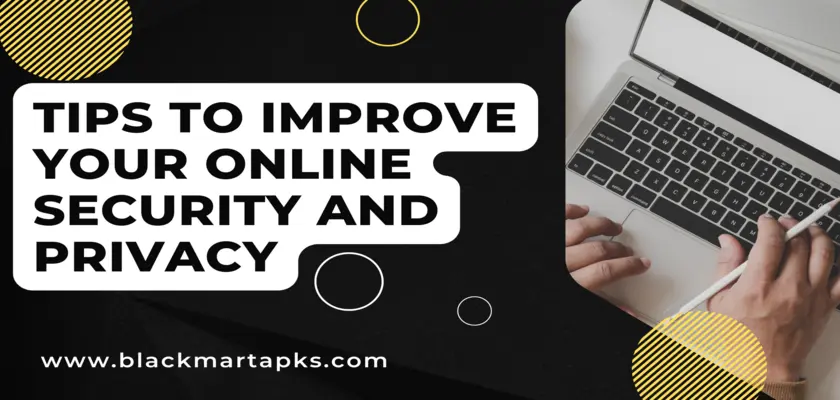It can be difficult and costly to manage your online security. You can increase the strength of passwords, remove spam from your inbox and avoid being victim to Phishing emails, all without spending anything.
Security is a common issue. Most people are reactive rather than proactive. After being infected by a data leak, it’s natural to want to make strong passwords for all your online accounts. If you do your research and take the time to secure all of your online accounts, you can prevent the next major cyberattack or breach.
Being a victim to identity fraud can be costly. Sometimes it can take several months, even years, to recover your credit and identity. You won’t be able to apply for new jobs or take out loans during this time. Many employers conduct credit check as part their screening process.
There’s no better time than now to start working on improving your online security. You should revisit these steps at minimum once per year to ensure that your online accounts are secure.
Check if your credentials have already been exposed
It’s a good idea not to update your passwords before you start updating them.
You can either use Are I Been Pwned (opens in a new tab), or CyberNews personal information leaker (opens in a new tab). Both tools can tell you whether your email was compromised. However, Have I Been Pwned provides detailed information about each data breach. Avast Hack Check (opens in new tab) will also send you an email detailing all breached passwords, and which online accounts they are.
Google and Apple have built-in tools that allow you to check if your passwords are compromised. Google Password Lookup will give you a list of all your compromised passwords and allow you to choose to change them.
You can go to System Preferences > passwords on a Mac to view all passwords in Keychain. Apple will show you next to each entry if any of your passwords have been compromised or reused across accounts. You can also find a link to “Change Password On Website”
Close your unused accounts
Cybercriminals will use your online accounts to attack other valuable accounts. This can lead to a larger attack surface. You should review all of your online accounts and remove any that you don’t use.
Background Checks.org offers an online tool called Just delete me (opens in a new tab) that will make it easier to delete your accounts. This tool is a list of links that allows you to delete accounts from the internet. You can also see which accounts are easiest to delete (red), difficult to delete(red), or impossible to delete. You can even click the “Show Info” button underneath each entry to see detailed instructions for how to delete it. You can also download a Google Chrome extension (opens in new browser) that adds a traffic light icon on the browser’s Omnibar. This icon displays all the information available from Just Delete Me at one glance.
You can make the internet safer by deleting unused accounts. This will reduce spam in your inbox, and help you to be more organized online.
Create strong, unique passwords for all your online accounts
It can be hard to come up with strong passwords for your online accounts. This is why many people fall into credential repetition, where they reuse the same password across multiple accounts. This is the easiest method to hack your online accounts. Once your password has been compromised on one site it can be used to gain entry to other accounts.
You should instead use a password generator. LastPass offers a free password generator tool (opens in new window) that will help you accomplish this. It also features a toggle at its bottom which allows you to change the length of your passwords. You can also have it create passwords that are simple to remember or easy to read. It can include numbers, symbols, and uppercase letters.
Use a Password Manager to Securely Store Your Passwords
A password manager is a tool that can help you create new passwords. While paid services may offer more features, bitwarden is an open-source password management tool that does the job.
Bitwarden’s free plan allows you to create unlimited passwords, and sync them across unlimited devices. You can also download apps for desktop and mobile, as well as browser extensions. After trying the free plan, you can upgrade to a paid one if you need more or want to use the service for business.

Install an Antivirus
Install antivirus program on Windows PCs to protect yourself from malware and other cyber threats. You may not need it as Microsoft’s pre-installed antivirus software, Windows Defender has improved greatly in detecting threats over the years. It is available for both Windows 10 or Windows 11. You may still want to look at the settings and make sure everything is working correctly. Windows Defender is best used with other Microsoft products. This means you will want to use Microsoft Edge when surfing the internet.
Android users find themselves in the same situation. Google Play Protection can help protect your phone with minimal impact to your system. It is pre-installed, and activated by default just like Windows Defender. Google Play Protect doesn’t detect malware well, so it is worth installing a separate Android antivirus application if you need to provide more protection for your tablet or phone. Google Play Protect will still work on your device, even if you have an antivirus app.
Learn how to detect phishing emails to avoid scams
Phishing emails can be used to steal personal information and credentials. This is why they can be so harmful to your online security. You should be able to recognize them and not click on their links. Microsoft provides a detailed Support Page (opens in new window) that includes tips and tricks to help you avoid phishing. It also contains information about how to spot suspicious attachments or email domains, bad spelling, and mismatched email addresses.
The cybersecurity firm proofpoint offers a free Phishing Awareness Training (opens in new window) program that includes eight mini-courses about phishing campaigns, including lookalike websites and fraudulent shipping notifications. These courses will provide valuable information and warning signs as well as actions to prevent you from falling for phishing scams. To sign up, you will need to have a business email address.
Don’t use the same email address for all your online accounts
Experts recommend that you have four email accounts. Two accounts will suffice for online security. You can have one main email account as well as an alternate.
Tony Anscombe, chief security evangelist at suggests that you put your finances in one account and everything else in another. You’ll be able to see your financial and business emails immediately in one email account.
You can also improve your online security by only sharing your primary email address with the people who require it. You won’t get spam if a cashier requests your email address while you shop. Your email will not be disclosed if your company is the victim of a data breach.




